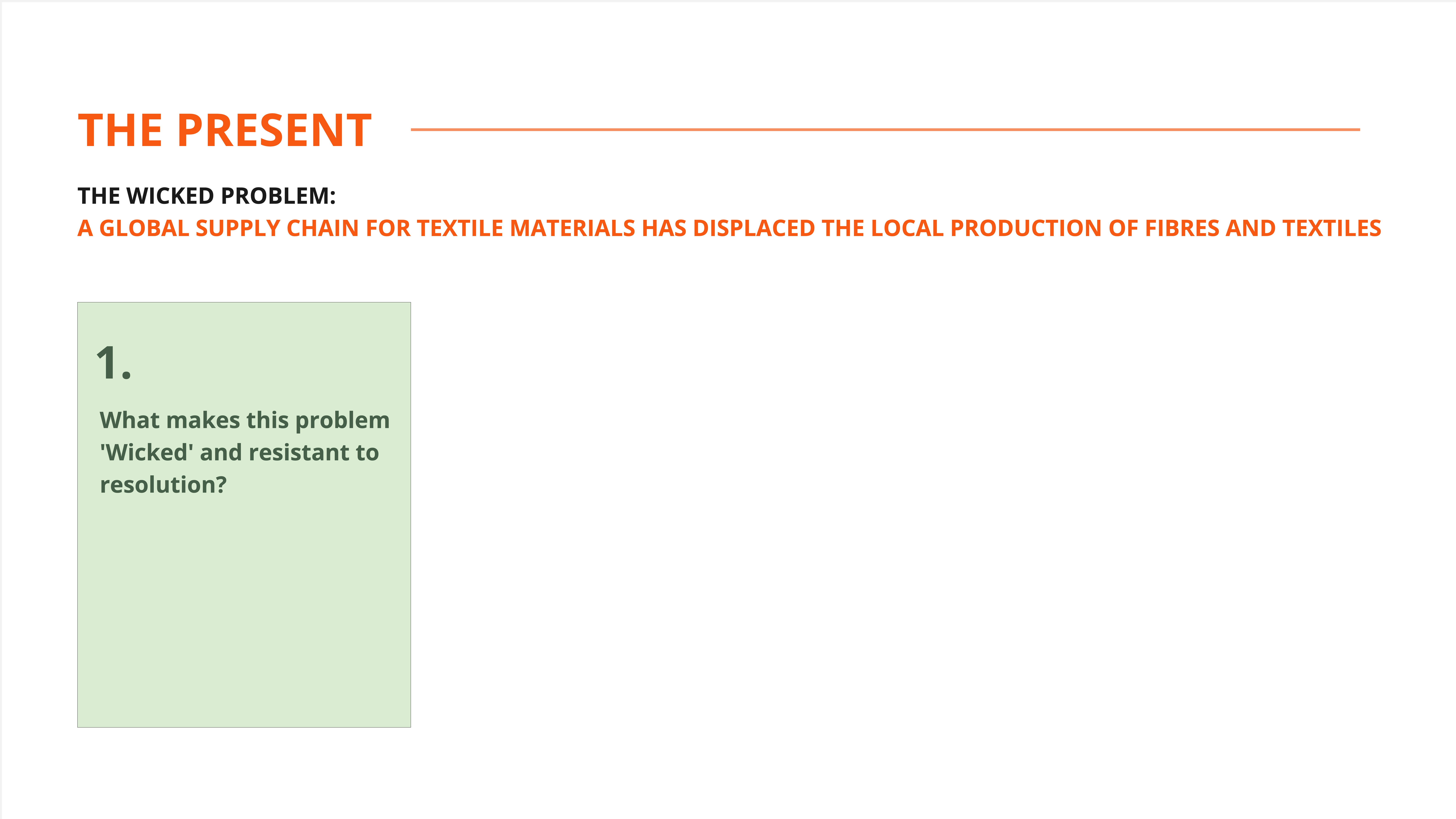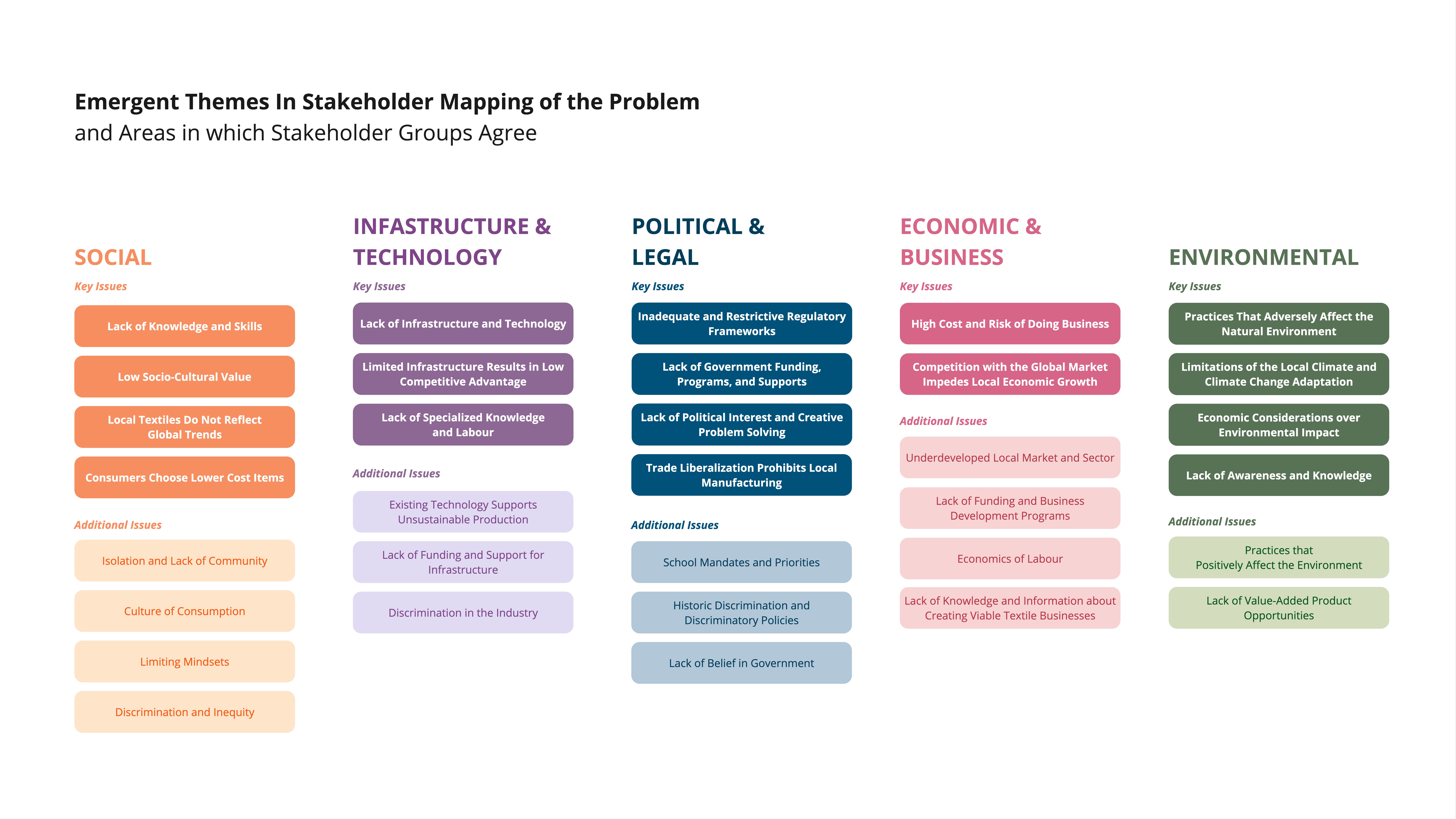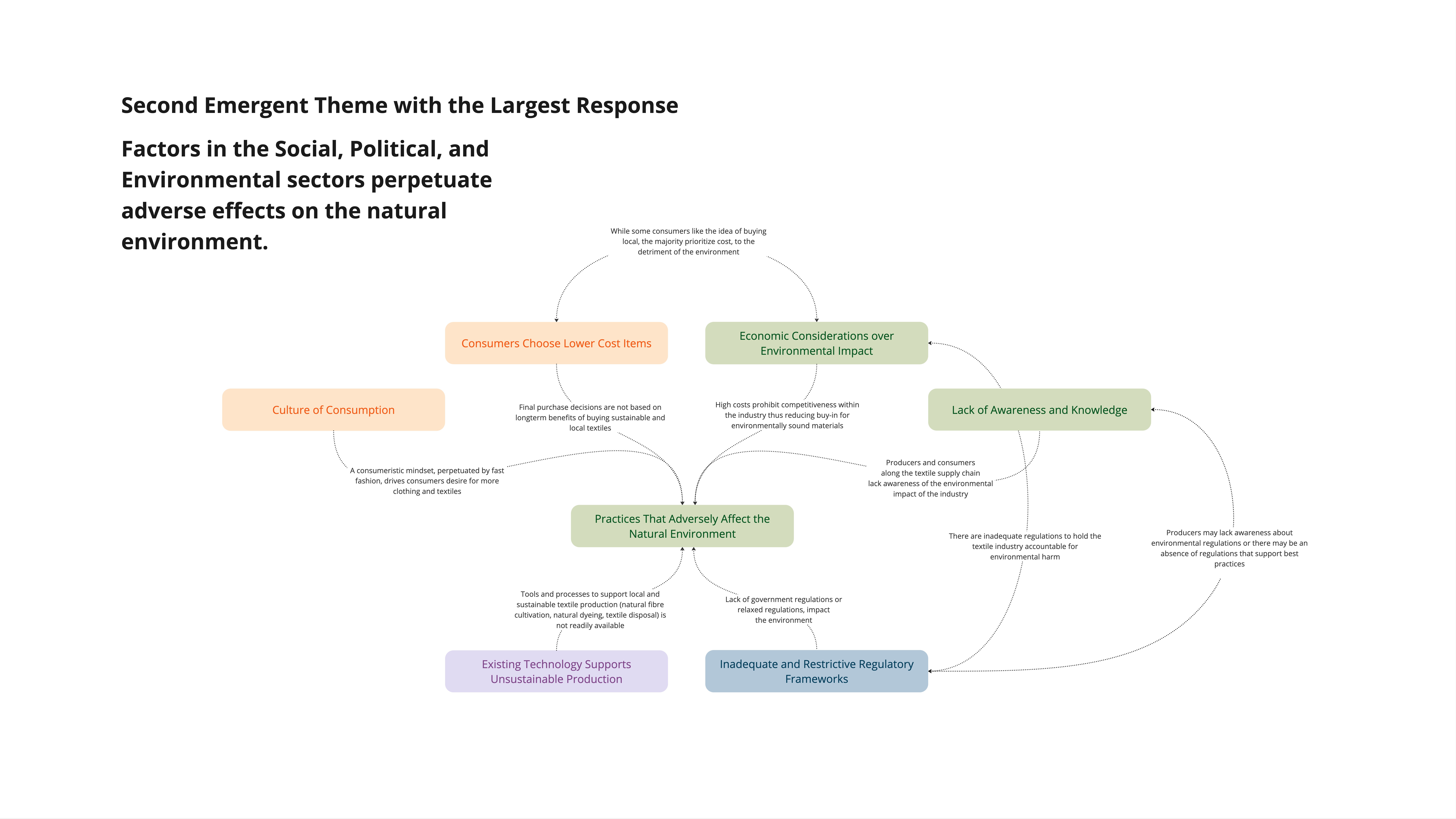Research
The Flaxmobile research team has carried out desk based research to identify the opportunities and challenges facing the textile sector in the Maritimes. Our research is guided by a novel systems design approach called Transition Design. Through transition design, we have defined the wicked problem facing Nova Scotians as: A global supply chain for textile materials has displaced the local production of fibres and textiles. Through this research, we have produced a series of maps which visualize the complex nature of the problem facing our region as we work toward defining a shared vision for its resolution.
Methodology
Transition Design is an approach used to address systemic, interconnected, and complex problems that manifest in context-specific ways. These kinds of problems tend to transcend disciplinary, sectoral, and often geographical borders. Transition Design uses the term “wicked problem” to denote a problem that cannot be solved by one solution, one person, or even by one type of expertise. Rather, it exists within a complex network of issues, some of which may not seem related at first glance. The Transition Design approach uses community engagement sessions to gather anecdotal evidence from people on the ground engaged in and experiencing the problem. The goal is to understand the complexity of the wicked problem, to reveal where interventions should be situated.
The Flaxmobile Project would like to acknowledge the support of Terry Irwin and Gideon Kossoff from The School of Design at Carnegie Mellon University. Irwin and Kossoff collaborated with the Flaxmobile in an advisory capacity to assist in the process of working with transition design as a methodology in our research project. Our process and maps are adapted from Irwin and Kossoff: The Transition Design Approach.
Community Engagement Sessions
The Flaxmobile Project convened several community engagement sessions to identify and gather a range of viewpoints from the community related to the development of a local textiles industry. We invited farmers, fibre processors, craftspeople, sustainable fashion companies, reseachers, economic development officers, and culture and heritage organizations, living and working along the textile supply chain in Nova Scotia to take part in the study.
The community engagement sessions took place in St. Ann’s, Cape Breton on December 12, 2023, in Truro on March 25, 2024, and in Halifax on May 27, 2024. The following video was prepared to give participants a sense of what to expect from the daylong event.
Participants were also provided with the workshop manual below in preparation for the engagement session.
Each community engagement session was documented to demonstrate the community consultation process and the participatory nature of the activities. Photos were taken by Steve Wadden, Scott Munn, and Wiebke Schroeder.
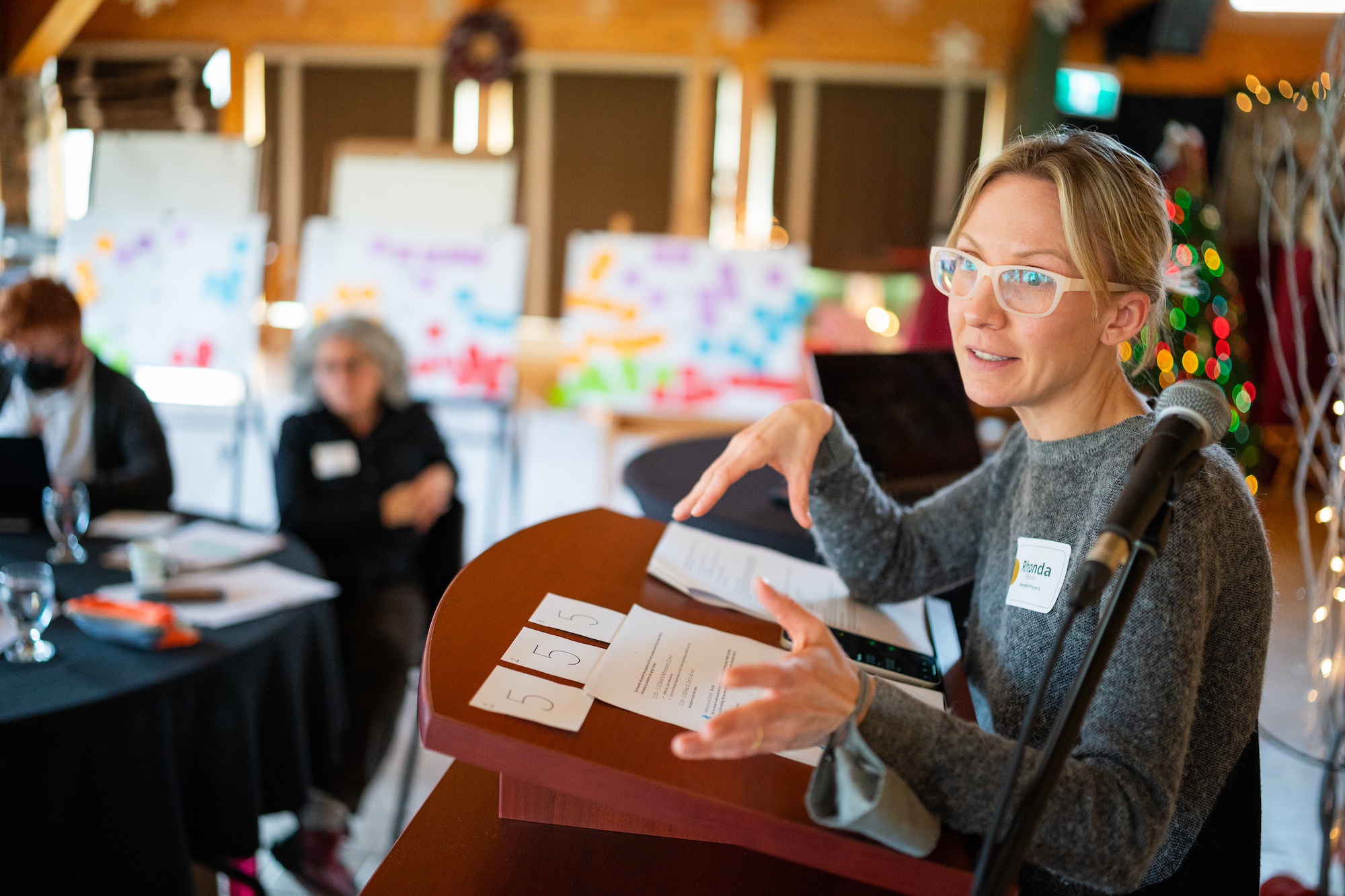
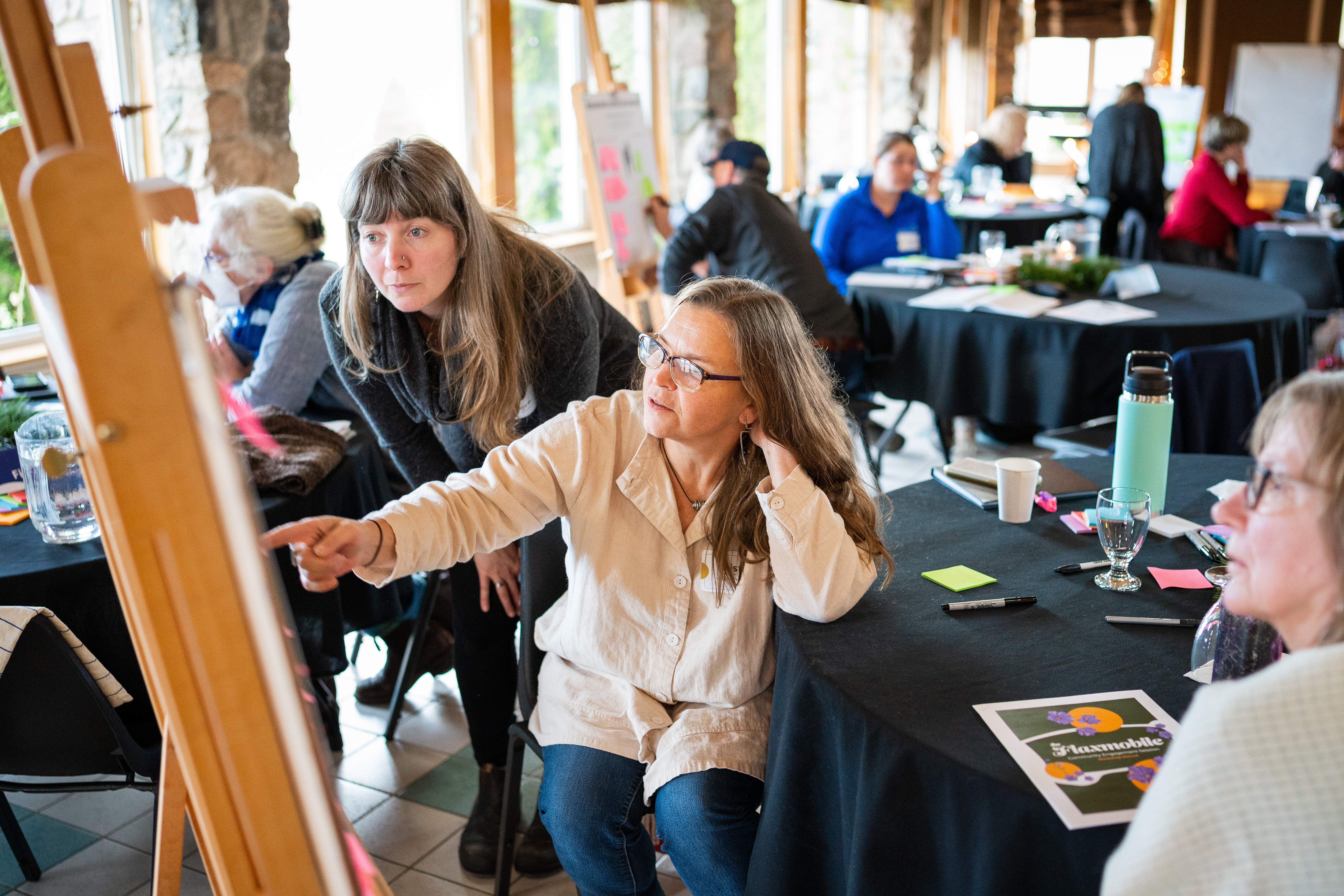






















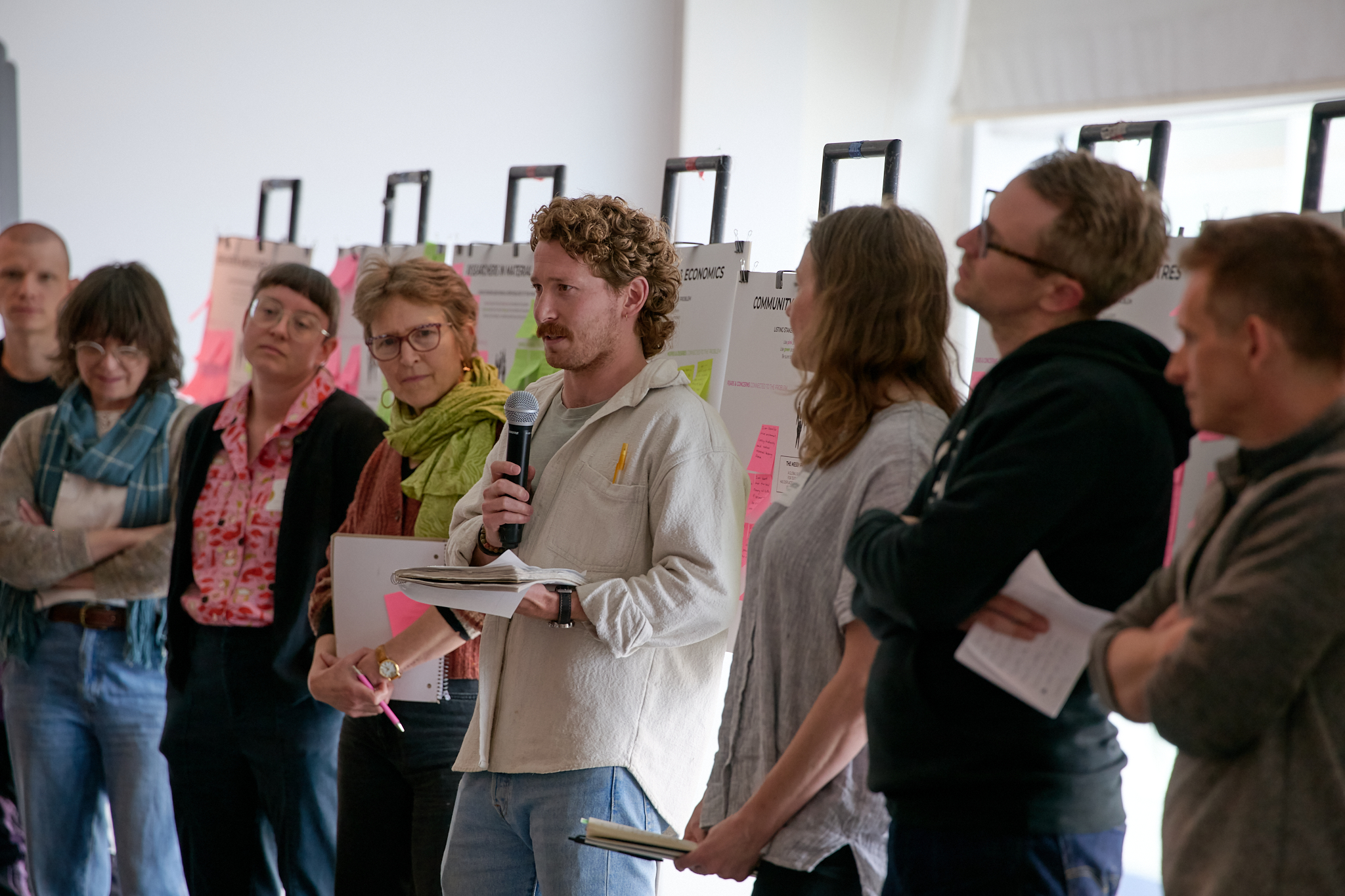
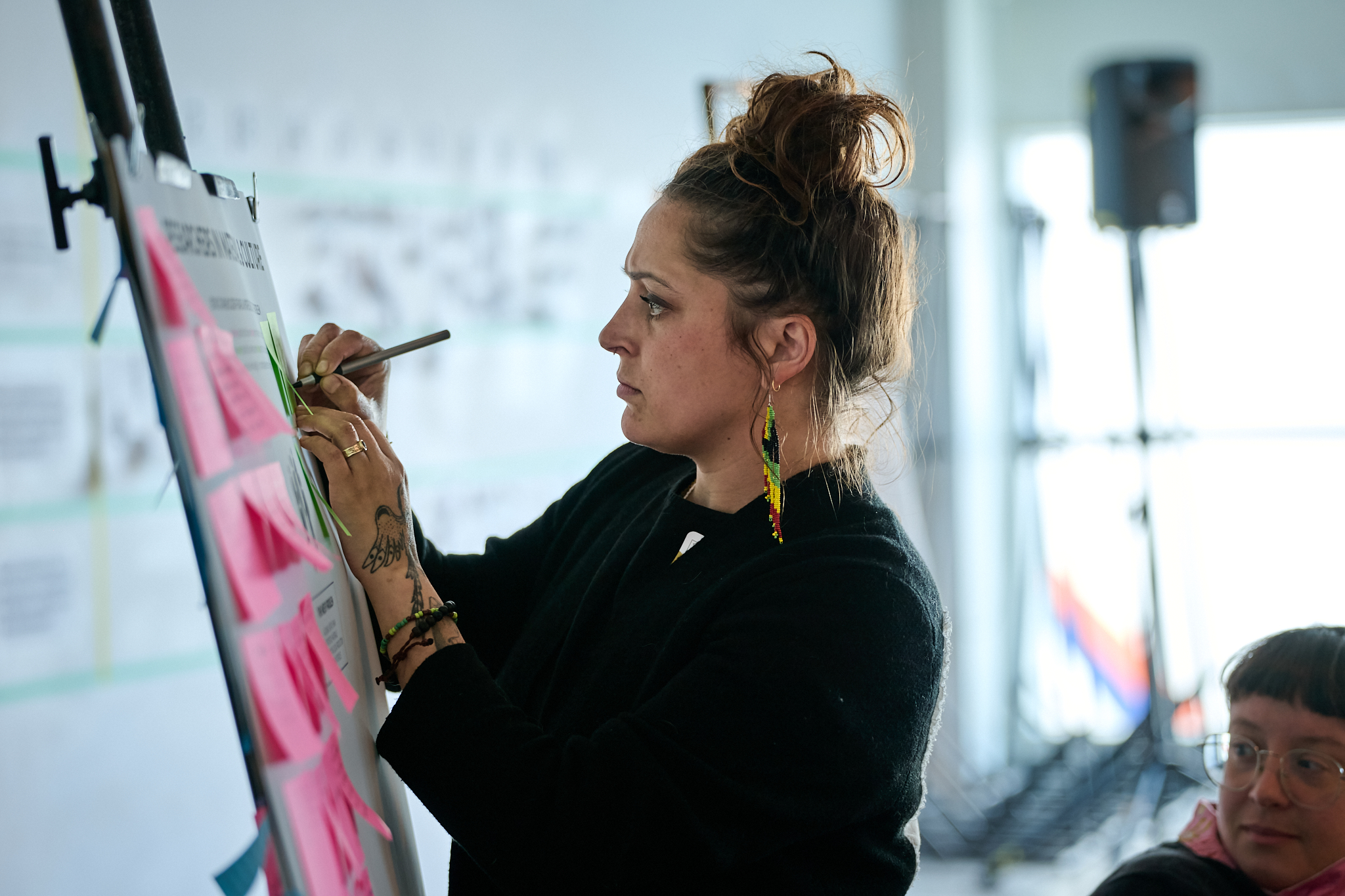

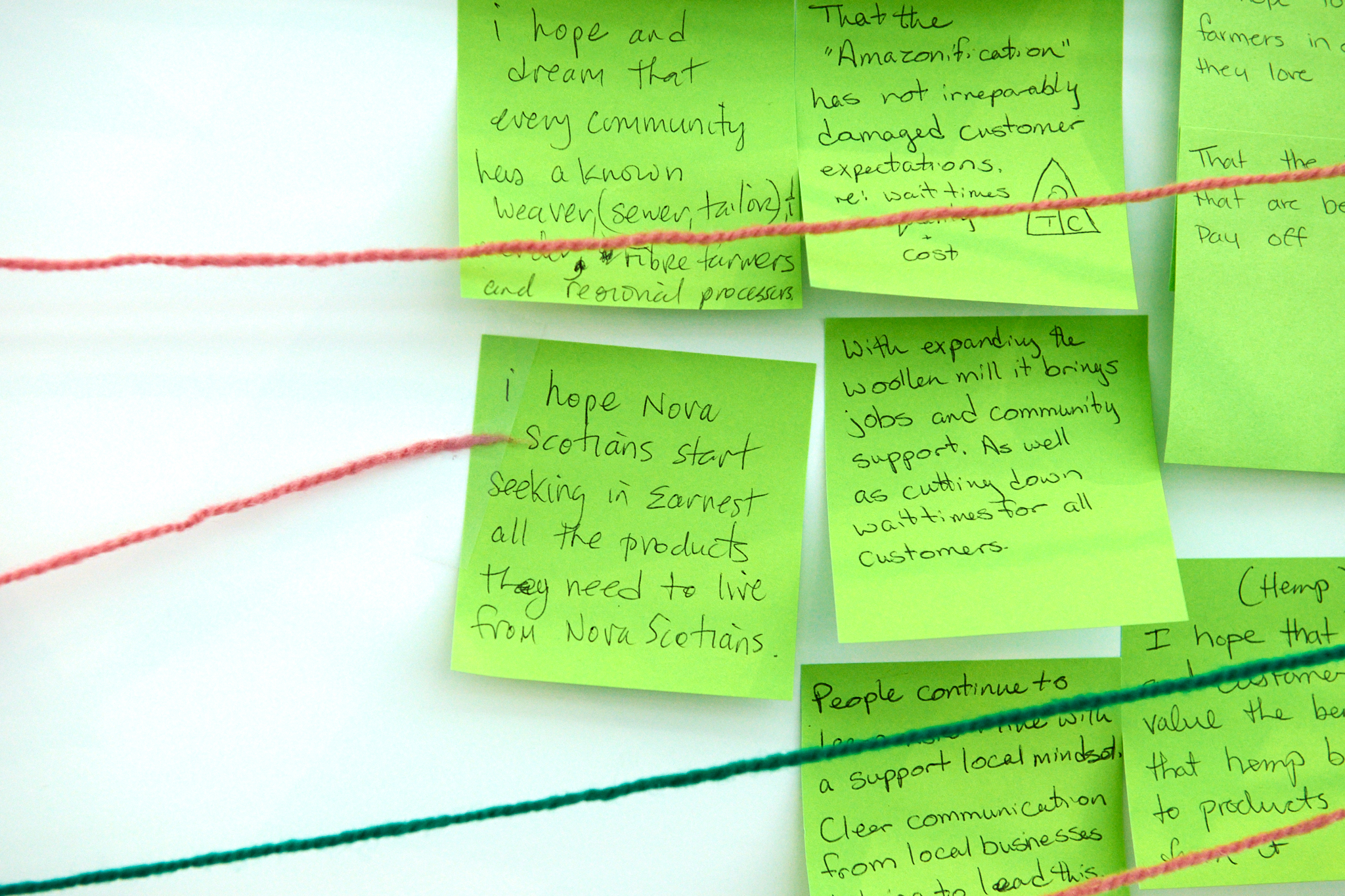
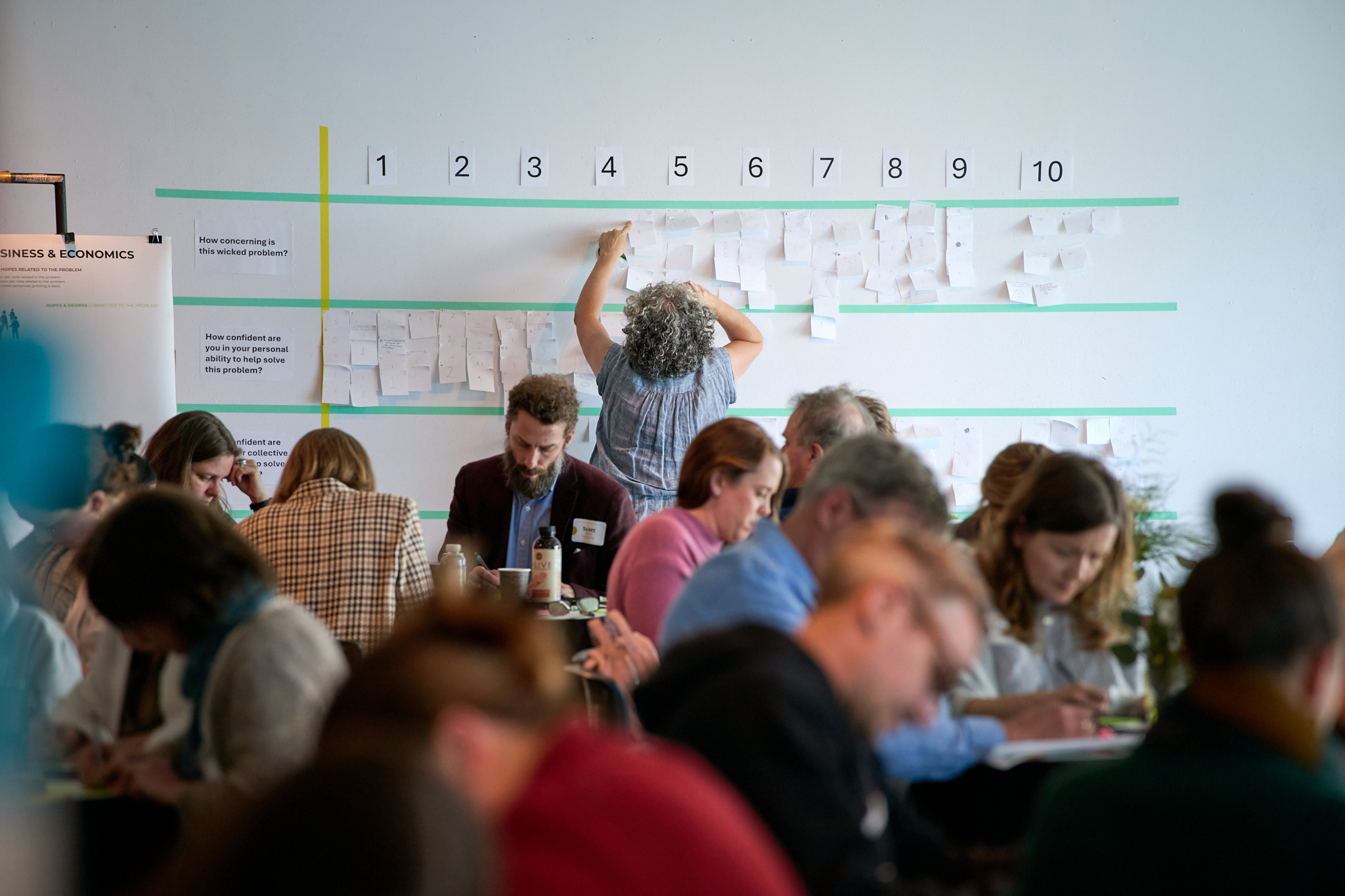
Participants of the community engagement sessions said the following about their experience:
“I have a much better understanding of the industry potential and obstacles.”
“One person/group can't solve the problem alone - it will take collaboration and working together to support each other.“
“I've learned about the breadth of the problem beyond my own perspective”
Transition Design Maps
Data gathered from the three community engagement sessions encompassed feedback from over eighty participants across eleven community groups. Over a period of eight months, the Flaxmobile research team compiled and analyzed the data to define emergent themes and create system maps.
In the following visualizations, we present our analysis of the wicked problem and participants’ hopes and fears about its resolution.
The top themes that emerged in Cape Breton, Truro, and Halifax were:
- Lack of Infrastructure and Technology
- High Cost and Risk of Doing Business
- Practices That Adversely Affect the Natural Environment
- Limitations of the Local Climate and Climate Change Adaptation
- Inadequate and Restrictive Regulatory Frameworks
Data gathered from the three community engagement sessions encompassed feedback from over eighty participants across eleven community groups. Over a period of eight months, the Flaxmobile research team compiled and analyzed the data to define emergent themes and create system maps.
In the following visualizations, we present our analysis of the wicked problem and participants’ hopes and fears about its resolution.
The top themes that emerged in Cape Breton, Truro, and Halifax were:
In the following visualizations, we present our analysis of the wicked problem and participants’ hopes and fears about its resolution.
The top themes that emerged in Cape Breton, Truro, and Halifax were:
- Lack of Infrastructure and Technology
- High Cost and Risk of Doing Business
- Practices That Adversely Affect the Natural Environment
- Limitations of the Local Climate and Climate Change Adaptation
- Inadequate and Restrictive Regulatory Frameworks
